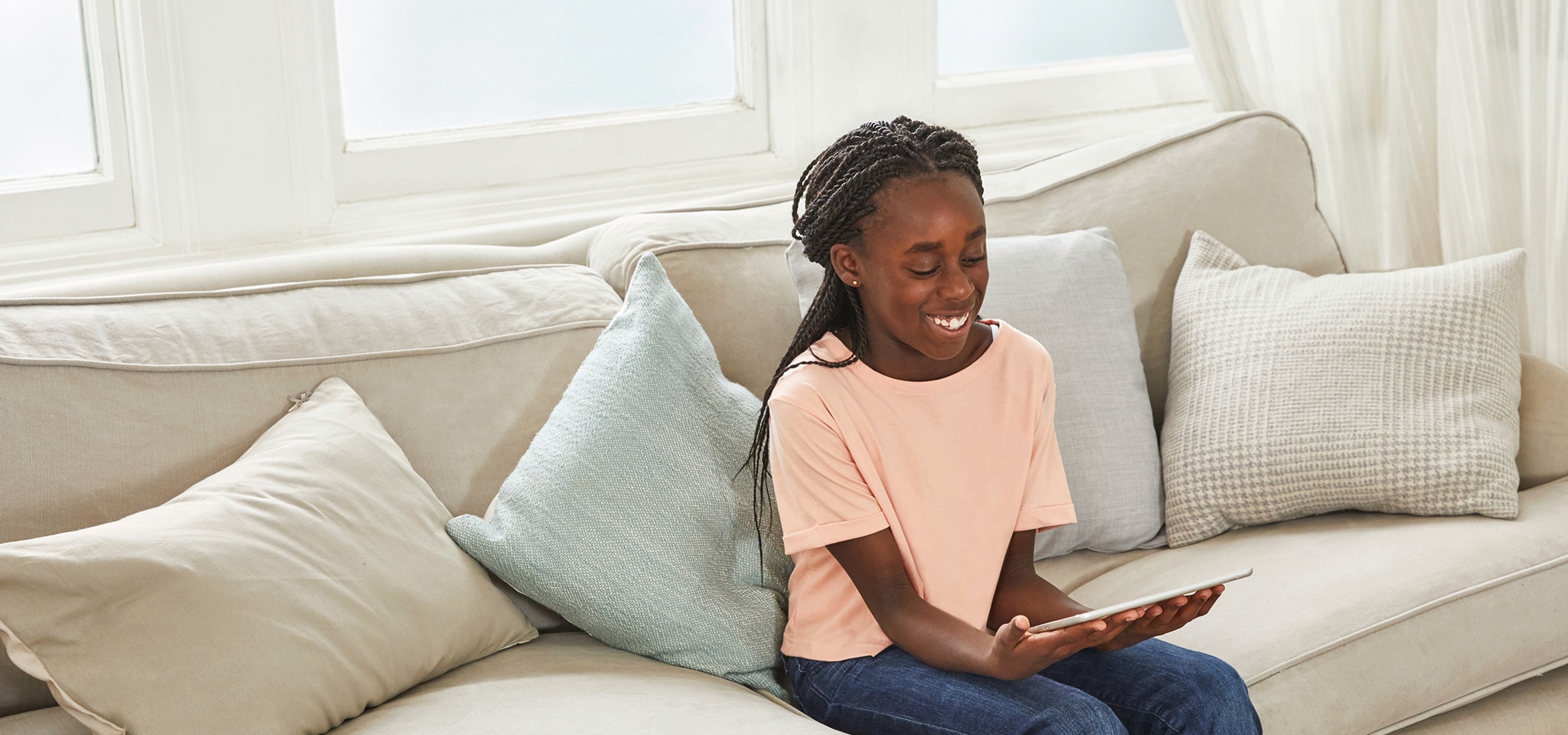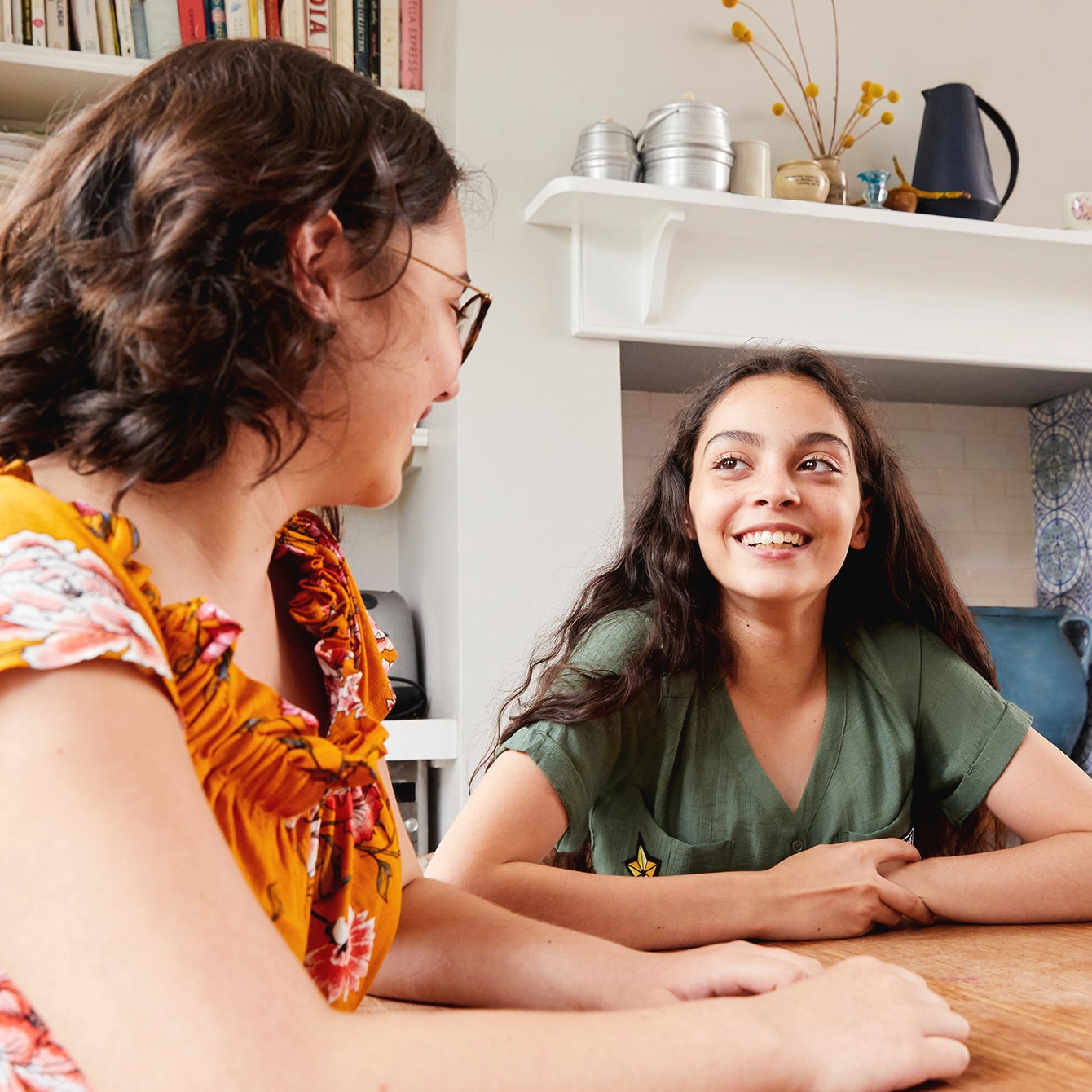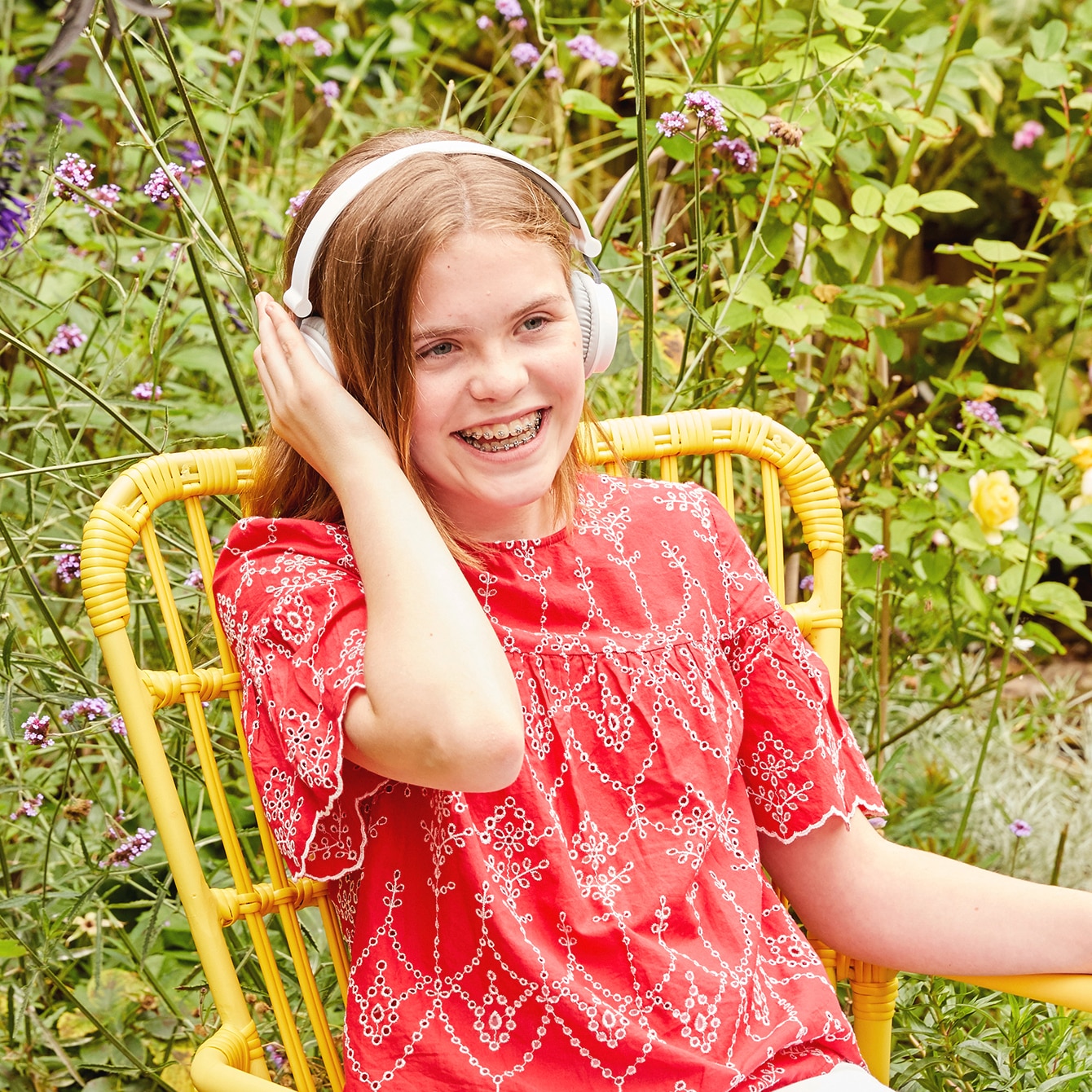From buying a first bra to starting her period, your daughter probably has hundreds of questions about puberty. Use our action checklist for open, honest, blush-free conversations about her changing body.
What does puberty mean?
Sometime between the ages of eight and 14, girls usually transition from childhood into adolescence. They may become disoriented by the rate and magnitude of change their bodies are going through physically, hormonally and emotionally. Welcome to puberty.
With the arrival of breasts, periods, body hair and new body fat, a girl can feel that her body is becoming unrecognisable to her. Unsurprisingly, this can have a big impact on her body confidence and self-esteem.
Naturally, your daughter may feel a bit embarrassed by these changes, and hypersensitive to anyone noticing them. As a parent, it can be tricky to navigate this sensitive time and provide all the support you'd like to.
Don't leave it too late to start the conversation about puberty
Lots of new 'information' may start flying around peer groups as they grapple with the new things they're experiencing.
"Early is usually best when it comes to puberty-related conversations," advises Dr Christina Berton, self-esteem expert and founder of the Amara Pro Self-Esteem Foundation. "Avoiding the topic could send her a message that you don't think she's mature enough emotionally to discuss it, which can be at odds with her rapidly physically maturing body. The earlier you open up some honest discussions about puberty, the easier it will be for her to talk to you when she needs to.”
Be open about her changing body
It might be tempting to leave a book casually on your daughter's bed for her to 'discover', but this makes it look like you're embarrassed. And if you're embarrassed, she will be too.
That doesn't mean you have to make a big deal of it, as mum Martine discovered. "I gave Lucy two books relating to sex, hormones and puberty to give her educational and emotional support without her feeling embarrassed," she says. "I reiterated some of the key changes and how to deal with them, but on a very casual basis."
Giving your daughter the opportunity to read about these changes herself, while being open and upfront about why you've bought her the book, gives her control over how she digests the information. It means you know she's learning from a trustworthy source but also gives her a clear signal that you’re available to talk if she wants to.
Let your daughter steer the conversation
In the midst of so much change, your daughter probably feels a bit out of control. It's important to talk about body changes in puberty, but there's a fine line between opening communication channels and being intrusive. You'll probably be the one to initiate the conversation (see some talk-starters in the action checklist below), but let her steer the discussion.
By being open and honest with your daughter in the early stages of puberty and helping to demystify the changes she's experiencing, you’ll give her a sense of control and help her avoid social awkwardness. You’ll also be supporting her emotional as well as physical development, building her self-esteem and laying the foundations for her to love and care for her body.
To protect privacy we've changed the names of people whose stories we tell on these pages, but the stories are genuine.




